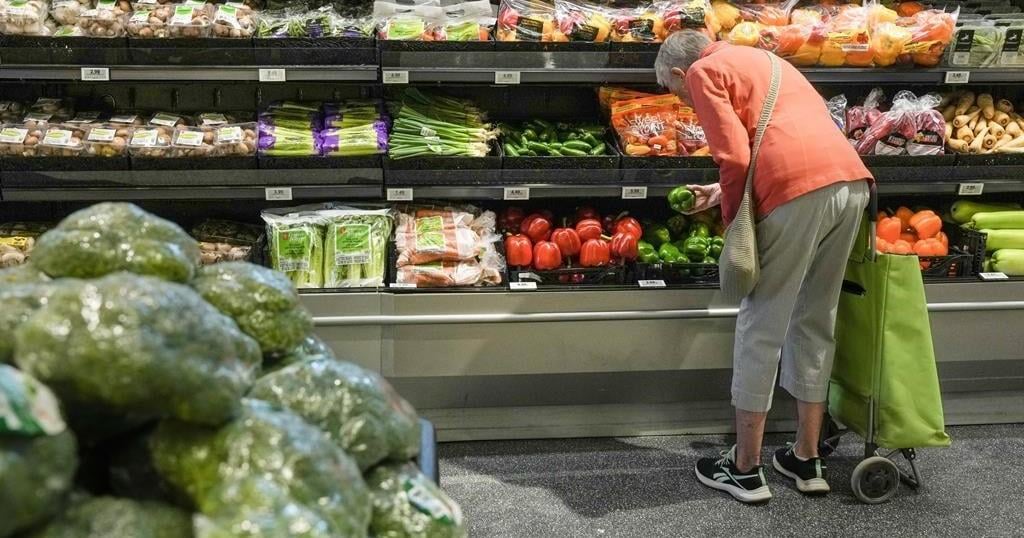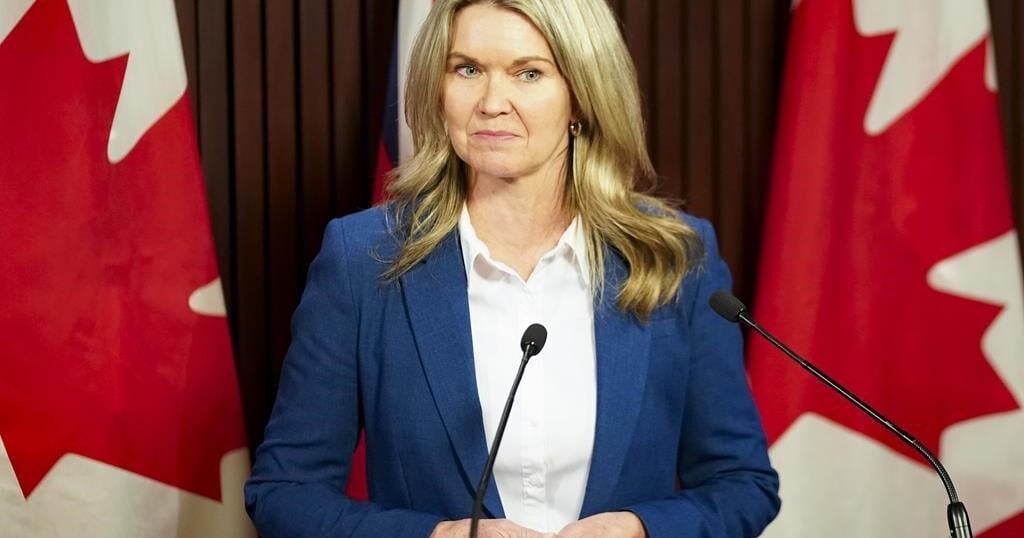Whether they’re shopping at multiple stores, flipping through flyers or seeking out independent grocers, many Canadians say theyhave changed their grocery shopping habits in recent years as a response to high inflation and, for some, growing distrust of large chains.
“We’ve really cut back on impulse buys. And we’ve really taken to, let’s not have the deep freeze full, let’s not have the fridge full, let’s not have the pantry full,” said Alberta resident Robin Dingwell.
He and his wife have started prioritizing grocery stores that price-match and checking flyers ahead of time.
“Price-matching has been the biggest thing for us,” he said.
Like Dingwell, many Canadians say they are being more mindful when they shop, eyeing promotions and sales and often planning their shopping trip around flyer deals.
Alison Forde in Hamilton, Ont., said she shops more often to take better advantage of specials and sales, is seeking out store brands for more value, and finds herself doing more in-store comparisons to discern which products are worth her money.
For example, store-brand products might come in a bigger size than the name brand, she said.
“But then when you get down to how much is it per gram, per millilitre, it can still be a better deal,” said Forde.
“You know, people will say, ‘Oh, you’re nickel and diming, it’s only a 20-cent difference in the end,’ but it adds up.”
For some Canadians, saving money on groceries involves switching stores — something the major grocers have taken note of, as they’ve been expanding their discount store footprints to capture demand for better deals.
Some shoppers are travelling a little farther for their groceries, even going to multiple stores to take advantage of all the available promotions, while others are trying to prioritize spending their money at independently owned grocers.
Craig Treulieb in Kitchener, Ont., said instead of doing the bulk of his shopping at Superstore, he has diversified his shopping trip. He now takes a bit more time, hitting up Food Basics and local independent stores.
“We used to not be super concerned about shopping deals and generally found Superstore’s prices to be OK, good enough. And it was convenient doing one shop,” he said.
Treulieb has also signed up for a weekly farm vegetable box, and is buying more in bulk at Costco.
Michael Ianni in Vancouver said he grew frustrated with the prices at his nearby Safeway, and has started travelling farther to go to independent small stores in his area.
“I go and take a nice stroll on Commercial Drive, and I find other stores, and there’s sometimes cheaper prices or comparable,” he said.
“For me, it just feels better to support them. And sometimes if you look, you can find better deals.”
Ianni also keeps a list of some of his most-used food staples and keeps track of which stores have the best prices on them.
“I’ve had some fun with it. It becomes a bit of like a scavenger hunt,” he said.
Some dietary changes have also been helpful for shoppers on a budget.
For Treulieb, eating less meat has helped reduce his grocery budget. He’s switched from canned beans to dried beans, and is cutting back on chips and candy as he’s seen their prices go up.
Forde said she’s found herself baking at home more.
“We always did cook from home a lot as well. And I think that helps us manage our budget,” she said.
She is also expanding her backyard garden, and has plans for corn, potatoes, squash and more — and is considering learning how to preserve as well.
Some Canadians say their grocery habits have changed in part because of the boycott against Loblaw-owned companies, which originally ran for the month of May but which some participants say they have extended indefinitely.
The boycott was sparked by rising frustration with the major grocers amid rising prices and corporate profits.
Liz Parker, who lives in downtown Toronto, said she was “quite inspired” by the boycott, and decided to take part.
That’s led her to explore the smaller grocers in her area, though she added it’s definitely easier to shop around when the weather is nice. She does occasionally shop at a Loblaw-owned store still, but said she’s been getting almost all of her groceries at one of the small grocers near her, which she finds cheaper than the national chain.
Ianni said he feels that there’s a lot of pressure on consumers to shop consciously, but prices can make those decisions harder.
“At the end of the day, we have to make ends meet,” he said.
“Sometimes it’s tough to make those calls, but I certainly do the best I can.”
This report by The Canadian Press was first published July 26, 2024.





















